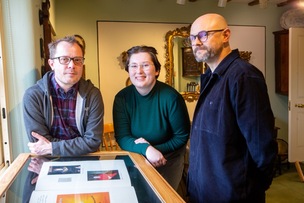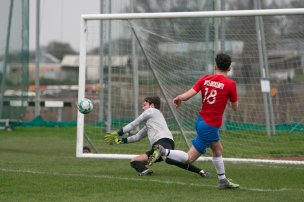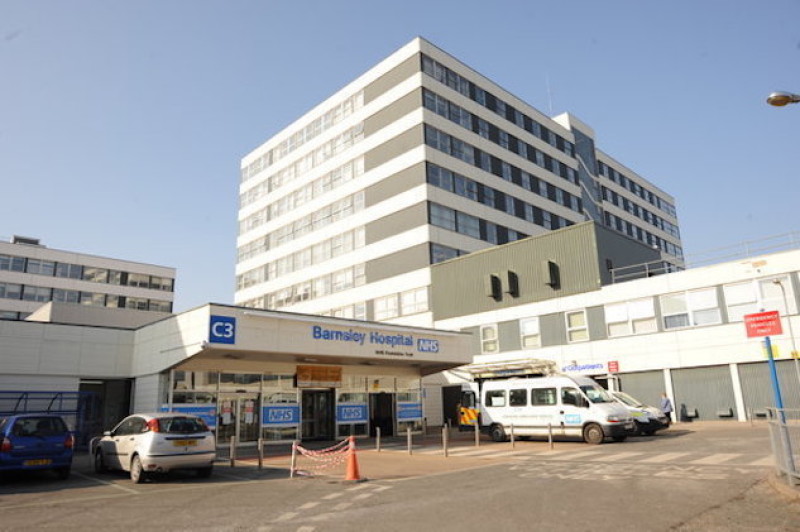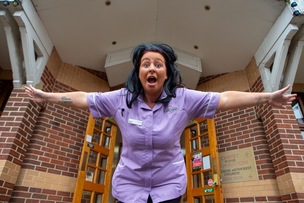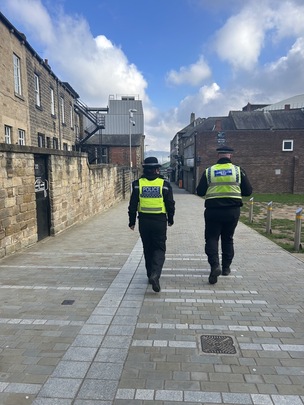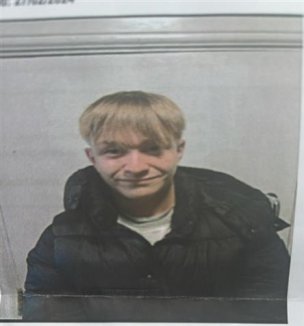A LEGAL challenge has been launched by a Barnsley resident against health chiefs who are closing Barnsley Hospital’s emergency stroke services.
The decision to close the hyper acute stroke unit, which provides the first 72 hours of critical care after a stroke, was made in November by the Joint Committee of Clinical Commissioning Groups (JCCCG) following a review and consultation.
The unit at Rotherham will also close, and anyone who suffers a stroke will be taken to Pinderfields, Doncaster, Sheffield or Chesterfield for the first 72 hours of care. After that time, if well enough, they will be brought back to Barnsley for the remainder of their care.
But the unnamed resident, along with Save Our NHS campaign groups in Barnsley and Rotherham, is concerned the views of local people in the two towns were not taken into account, and that the people were not treated fairly.
The challenge has been made on the grounds the committee failed to ensure all relevant information was obtained; is proceeding without the Joint Health Scrutiny Committee having opportunity to consider the case and make recommendations; the reliance on the consultation not being rational; the committee’s alleged failure to take into account the majority of the views were against the proposals; and that taking emergency stroke services away from people’s own communities fails to comply with the UN convention on the rights of people with disabilities.
Both Barnsley and Rotherham Save Our NHS groups have launched a crowd-funding page to fund the challenge. It aims to raise £5,000 and so far, £680 has been donated by 23 people.
Susan Shaw, spokesman for the BSONHS Campaign Group, said: “Our aim is to safeguard the future of NHS stroke services in the region, at Barnsley and Rotherham hospitals.
“We believe that the decision taken by the JCCCG public consultation will be a potential disaster for the people of Barnsley and Rotherham. This is because access to these hyper acute NHS services will come under pressure.
“Under the current plans many vulnerable people will have to travel many miles, often on public transport, which requires multiple changes, to access specialist hospital care. These journeys will also be often made during emergencies, and the impact, we believe, on those needing care will be significant.”
A JCCCG spokesman said: “The decision to change the way people receive care in the first few days after having a stroke follows three years of work with all partners, doctors, nurses, staff and public consultation, and is about saving lives and reducing disabilities. All the evidence from across the country where changes have already happened tells us this is the right solution and allows us to concentrate expert staff in the right place.
“Taking all evidence and feedback into account, it was decided that the initial treatment for strokes will be provided in hospitals with very specialist staff and skills in Chesterfield, Doncaster and Sheffield and Pinderfields Hospital where it is closer for some Barnsley patients to be taken by ambulance to Wakefield.
“For some patients in Barnsley and Rotherham, this will mean being treated in a hospital that isn’t their local one for around the first 72 hours but it also means they will receive the high quality, specialist care they need. We have been working with our ambulance service colleagues to make sure all patients would be rapidly transported to the most appropriate hyper acute stroke unit to receive their treatment.”
A solicitor appointed to represent the campaign groups has explained what the legal challenge may mean.
Rebecca Chapman, a solicitor at Irwin Mitchell representing the group, said the specialist legal team had moved to issue judicial review proceedings challenging the decision to close the stroke units.
A judicial review is a type of court proceeding in which a judge reviews the lawfulness of a decision or action made by a public body.
In other words, judicial reviews are a challenge to the way in which a decision has been made, rather than the rights and wrongs of the conclusion reached.
Rebecca said: “We were instructed by the Barnsley Save Our NHS Campaign Group to establish whether the JCCCG’s decision making has been lawful and whether there are grounds for a judicial review.
“We have now issued judicial review proceedings on behalf of a local resident to challenge the decision by the JCCCG to close the Hyper Acute Stroke Units at Barnsley and Rotherham Hospitals.
“This is obviously a very important issue and one which affects thousands of people across the region. Our clients believe the decision to close these services would be damaging and would limit peoples access to the much needed, potentially lifesaving local NHS stroke services.”




